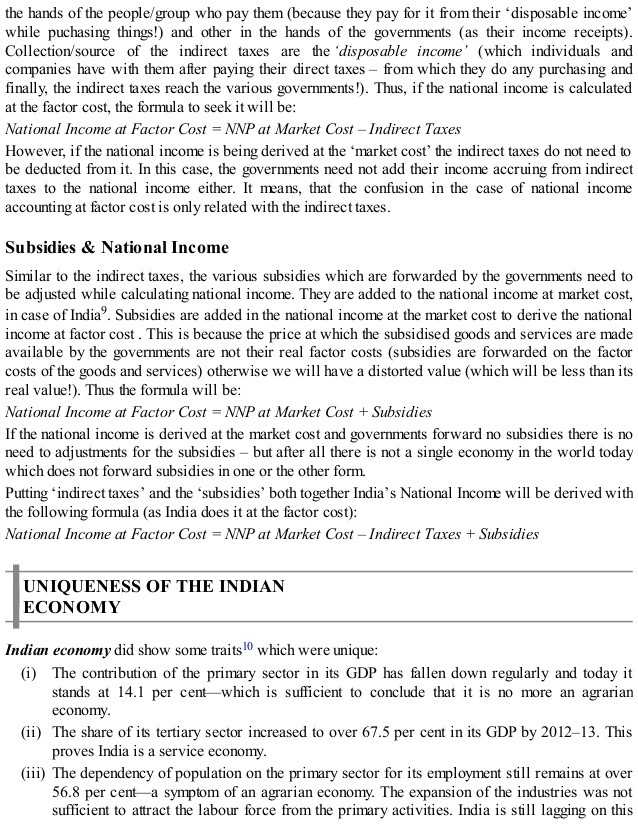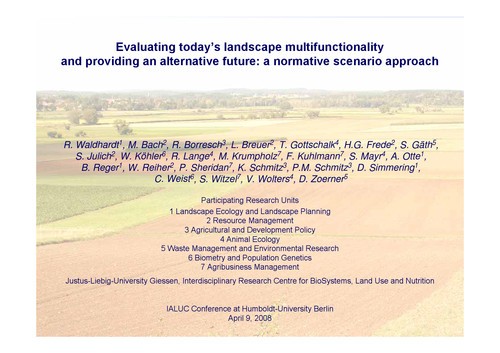Providing Rational and Normative Policy Evaluation with Hedonic Estimation in Developing and
Post on: 16 Март, 2015 No Comment

Rodney Erakovich (Texas Wesleyan University, USA), Gerald Poppe (Upper Iowa University, USA), John F. Shampton (Texas A&M University – Central Texas, USA) and Kalpana Pai (Texas Wesleyan University, USA)
Export Reference
Abstract
Market economy and democratic evolution in public policy requires a shift from a comprehensive rational and positivism approach to including normative considerations through a social participatory thesis. The key question of this chapter’s examination is: Do the fundamental ideas of econometric evaluation of land value as a basis for public policy contribute worth for the society as a whole? Policy that exploits market mechanisms cannot be developed in isolation of the larger societal needs that are required to enrich democracy. To do this, the authors provide an econometric model of valuation of land to test and predict policy outcomes to enhance democratic transition. Establishing market value is a tool that supports policy economic development goals and normative outcomes desired through political transparency in the emergence to democratic processes. The authors conclude with recommendations for implementation to support stakeholders in the policymaking process.
Chapter Preview
Introduction
The last decade of international economic expansion has been the result of profound, rapid and complex change in the global landscape. One of the most significant changes occurred between 1989 and 1991 in which nine countries in Eastern Europe and the Balkans (Gill, 2000) emerged from Communism toward democratic consolidation internally and collectively as a region. In the conversion fledgling democracies, countries with command and mixed economies have had to reconfigure their public policy making processes and take into account normative and societal consequences for system wide performance (Fischer, 1995).
Gone is a reliance on post-Soviet like centralized bureaucracies and political elites deciding imitative market policy; in its place is the requirement in using market mechanisms, normative considerations and a social participatory theme to frame the foundation for policy formulation. Yet, the transition has been far from smooth. For example, the 2006 Constitution of the Republic of Serbia guarantees private and public property rights in an effort to restructure public monopolies and move toward market development of costs and price of services. While this approach seems rational, the normative considerations of societal inclusion into this policy development simply moved the public monopoly from one inefficient structure to another. The reform failed to produce investment opportunities and wealth creation stunting the development of the middle class and development of an engaged society.

Underappreciated in the Serbian example are the barriers, politically, socially and administratively, of public administrators to use markets signals generated by a vibrant civil society to create a policy that reflected societal preferences. Efficiency oriented policy that exploits market mechanisms cannot be developed unless key stakeholders, who were kept from participating in the policy process, turn to the political regulatory process to have their voices heard. The result is social, market and political dissonance that erodes policy effectiveness.
What seems to be missing in emerging democracies is the importance of economic and political transparency, a normative consideration of fundamental importance for the growth of a market economy and democratic society. Public policy that supports a market orientation, based on economic indicators and not authoritarian decrees is important. Moreover, policy must add value to the process of democratic transition. The question then becomes – can a market that operates with the context of a vibrant civil society generate the policy relevant information public administrators need to produce policies that have economic and contributive value for the society as a whole?
To support the hypothesis that public policy must consider not only rational but normative considerations, we argue that an important element in policy formulation is the market value that provides information for civil society to diagnose conditions and make pluralistic decisions. The process of reference to measurable characteristics is needed. The one constant in all developed, developing and emerging market oriented nations is land use. The product of land use using the Hedonic Pricing Function (HPF) can be used to recognize locational, regional and state value determinants. It is a rational tool that connects policy economic development goals and normative outcomes desired through political transparency to provide support for civil society transition as key elements in the emergence to democratic processes. We conclude with recommendations for implementation to support stakeholders in the policy making process.
In making our case, inherent pitfalls and arguments can be made, both for and against valuing land and market oriented society. Here we provide that two key assumptions are important. First, our aim is not to negate other approaches or argue stages of democracy, but to supplement current thinking and provide tools for policy making that are transparent, quantitative and a basis for creating value, a requirement for any democracy. Designing quantitative analytical models appears to provide for elimination of structures and processes to be replaced with hard and fast rules; this is certainly not the intent of our thesis. Second, we acknowledge cultural differences between Western and European definitions of social order and democracy. The target is not suggesting superiority of one way of thinking over another. It is understood the empirical analysis does not stand alone and must be interpreted in the context of the cultural lens in which it is viewed.














